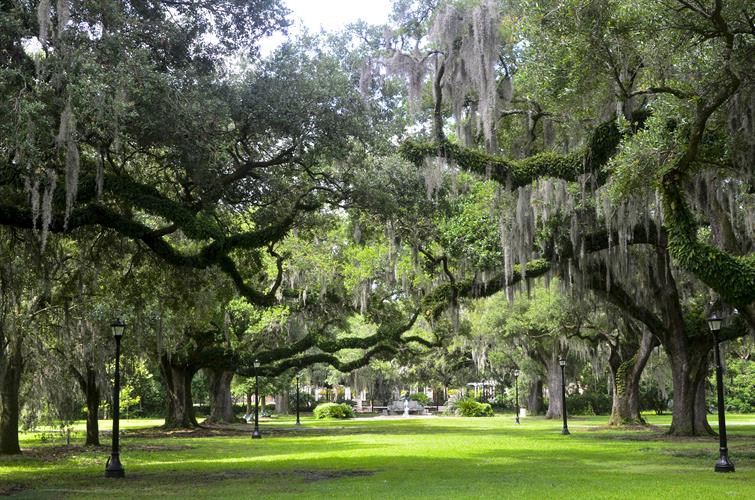Enhancing Quality of Life and Urban Resilience
New Orleans, renowned for its vibrant culture, historical richness, and culinary delights, is a city brimming with character. Yet, amidst its charm, there lies a crucial need for more parks and improved park management. And recently, New Orleans’ famed City Park lost its’ leader after only three years on the job. We can not lose momentum. Enhancing green spaces in New Orleans not only enriches the city’s aesthetic appeal. Parks also address critical issues of public health, environmental sustainability, and community cohesion.
The Current Landscape: Challenges and Opportunities
New Orleans, like many urban centers, faces challenges related to urban sprawl, limited green spaces, and inadequate park facilities. New Orleans has iconic parks such as City Park and Audubon Park. But the city’s overall parkland per capita remains below the national average. This deficiency impacts residents’ access to recreational opportunities, greenery, and communal gathering spaces essential for physical and mental well-being.
Promoting Public Health and Well-being

Increasing the number of parks in New Orleans would significantly benefit public health. Parks provide venues for physical activity, from jogging trails and sports fields to playgrounds and fitness stations. Regular physical exercise reduces the risk of obesity, heart disease, and other chronic illnesses prevalent in urban populations. Moreover, access to green spaces promotes mental well-being, offering respite from urban noise and stress while fostering a sense of tranquility and relaxation.
Environmental Sustainability and Resilience
Expanding parks in New Orleans contributes to environmental sustainability and urban resilience. Green spaces mitigate the urban heat island effect and lower ambient temperatures. And parks improve air quality by absorbing pollutants and releasing oxygen. They also play a crucial role in stormwater management, reducing flooding risks through natural absorption and filtration mechanisms. Furthermore, parks support biodiversity by providing habitats for wildlife and preserving native vegetation, enhancing the city’s ecological diversity and resilience to climate change impacts.
Community Engagement and Social Cohesion
Parks serve as vital community hubs, fostering social interactions, cultural exchanges, and community events. They provide spaces for neighborhood gatherings, picnics, festivals, and recreational activities that promote social cohesion and community bonding. Improved park management can facilitate inclusive programming and events that cater to diverse demographics, strengthening connections among residents and enhancing the city’s social fabric.

Economic Benefits and Property Values
Well-maintained parks enhance the attractiveness of neighborhoods, thereby increasing property values and stimulating local economic activity. They attract tourists, residents, and businesses, supporting nearby cafes, shops, and recreational rentals. Parks also serve as venues for cultural and arts events, drawing visitors and boosting tourism revenue. Investing in parks not only improves quality of life for residents but also enhances New Orleans’ appeal as a destination for visitors and prospective residents alike.
Addressing Equity and Access
Expanding parks and improving park management is crucial for addressing equity. Ensuring equitable access to green spaces across all neighborhoods in New Orleans makes the city better. Historically underserved communities often lack adequate park amenities, perpetuating disparities in health outcomes and quality of life. By prioritizing park development in underserved areas and implementing inclusive park management strategies, the city can promote equity, social justice, and accessibility for all residents.
Challenges and Considerations
Expanding parks in New Orleans necessitates careful planning, funding allocation, and community engagement. Challenges such as land availability, maintenance costs, and balancing diverse community needs must be addressed through collaborative efforts involving city officials, urban planners, community organizations, and residents. Sustainable funding sources and innovative park management practices, such as public-private partnerships and volunteer programs, can enhance operational efficiency and ensure the long-term sustainability of new park developments.

More Better Parks
Expanding New Orleans’ parks and improving park management is a transformative initiative with far-reaching benefits for residents, the environment, and the city’s overall resilience and vitality. Green spaces not only enhance public health and well-being but also promote environmental sustainability, economic prosperity, and social cohesion. By investing in parks, New Orleans can create inclusive, vibrant communities that thrive amidst urban challenges and embody the city’s rich cultural heritage. As the city continues to grow and evolve, prioritizing parks as integral components of urban planning is essential to ensuring a sustainable, resilient future for generations to come.


The Westbank Rangers Pathfider Club is asking that you would consider helping us by placing an ad in your paper regarding our plight. We are a youth faith based group of ages 10- 18 years of age, We are planing to attend an international Camping trip to Gillette, Wyoming August 4-11, 2024. We are in need of an additional $5,000.00 in effort to transport our 10 youth and 4 adults. We provide our youth with character building , a curriculum of nature, technology, problem solving activities as well as camping and survival skills.
We have our meetings and activities at 2401 General Meyer Avenue, New Orleans, Louisiana 70114.
You can learn more about us at http://www.pathfindersonline.org
Should you find it appropriate to post this, or help sponsor us, please contact me at (504) 330- 3395 or email irenedynasty01@yahoo.com
Thank you for your attention in this matter.
Sincerely
Irene H. Williams, M.S.W., Director